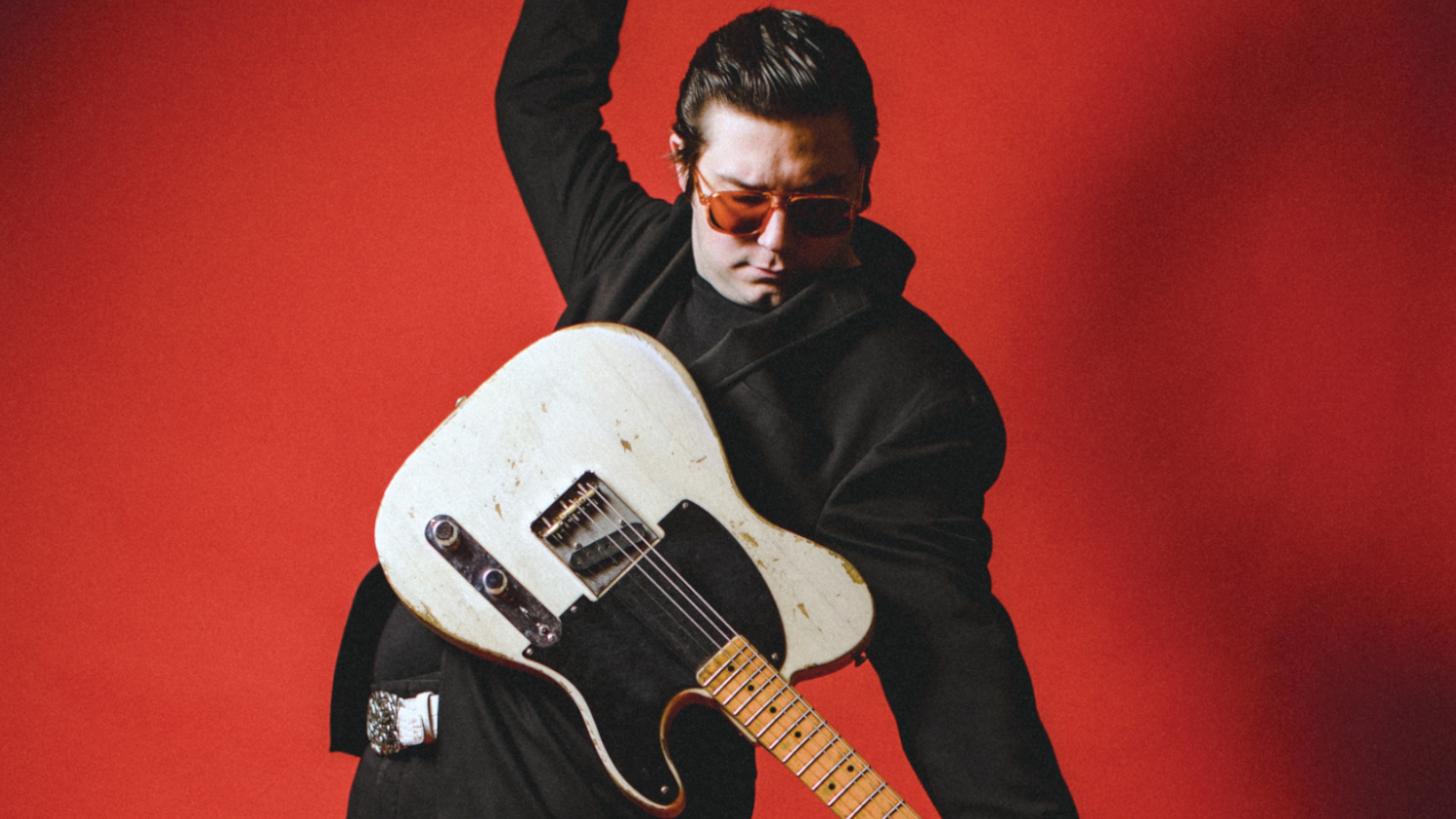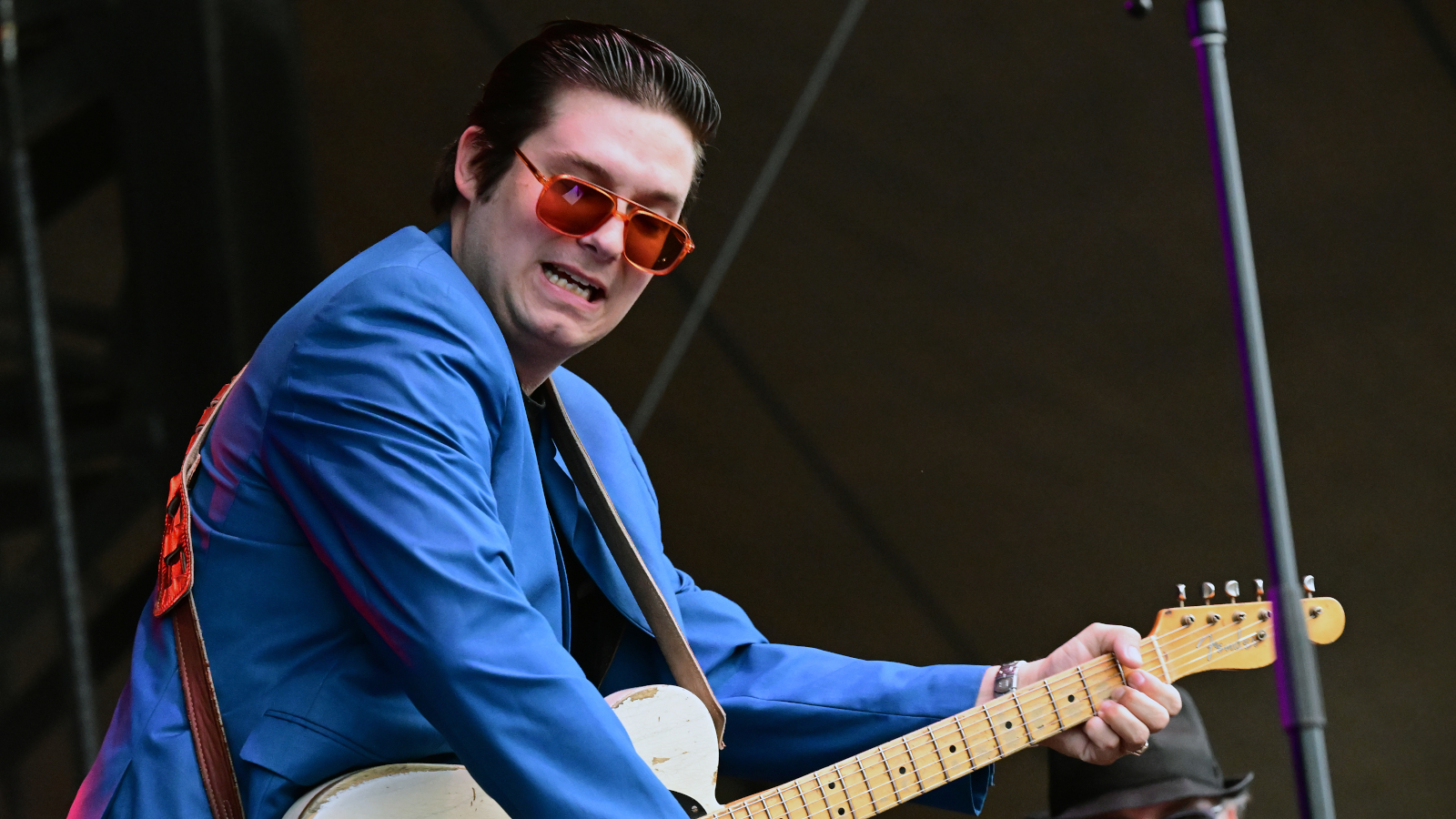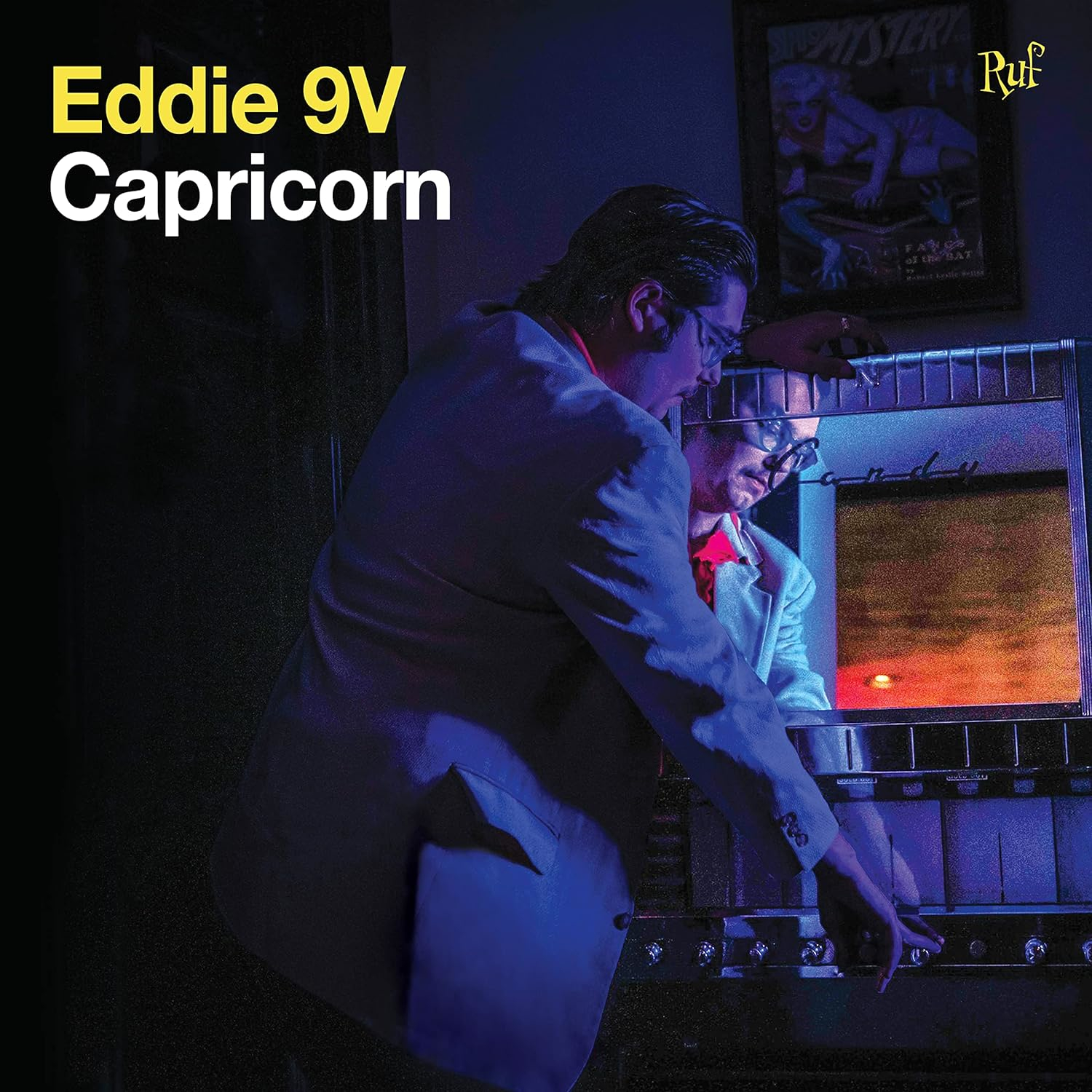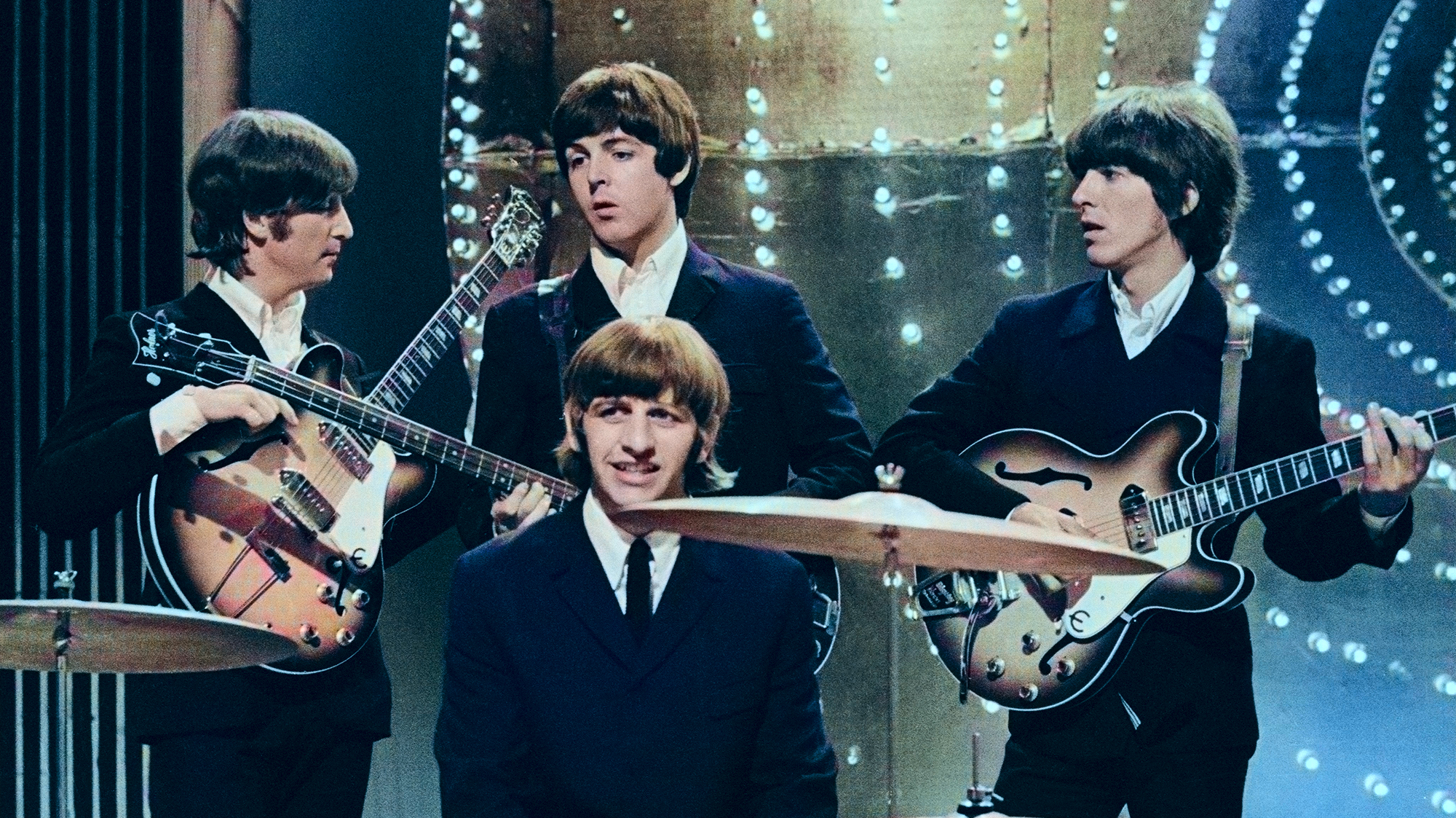“If You Think You’re Going to Get Better by Watching 30-Second Instagram Clips of Guitarists Playing as Fast as They Can, Think Again”: Eddie 9V Shares the Advice That Made Him Blues-Rock’s New Guitar Star

Fast-rising blues powerhouse Brooke Mason (a.k.a. Eddie 9V) remembers a great piece of advice he got after a gig. “Somebody came up to me and said, ‘Just breathe, man. You gotta look like you enjoy playing the guitar.’
“I thought about it, and I realized that I tend to hold my breath when I’m soloing,” he continues. “It’s like I’m caught up in this tense emotional state. Make no mistake: playing shows is hard work, and there’s a lot of stress involved. I like a certain amount of fight and danger when I play, but on the other hand, I should enjoy it more, too. I need to be in the moment when I’m playing, particularly when I’m soloing. So yeah, I need to breathe.”
Currently on tour to promote his sensational new album, Capricorn (Ruf), Mason took time out to dispense some of his own nuggets of guitar-centric advice.
1. Listen to Something New Every Day
“I know it sounds like a cliché, but you can easily get stuck in a rut if all you’re doing is listening to the same music over and over. Challenge yourself: Go listen to that random ’80s album your favorite artist put out – you know, the record no one talks about.
“I love to listen to new stuff. In fact, I probably spend a couple of hours every day checking out new music on Spotify. Now, when I say ‘new music,’ I mean it’s new to me. It can still be older tunes, but the point is that I haven’t heard them before.
“I’ve written many songs by listening to old Junior Wells and Leon Russell tunes that I’ve never heard before. I was even listening to Jimmy Cliff and Lee ‘Scratch’ Perry, and from there I wrote a reggae song. So much of the time I’m like, ‘Damn, that guitar sounds crazy,’ or ‘How did they get that vocal sound with the reverb?’ I get a lot of great tone ideas from listening to Spotify because I’m not stuck on the same records I’ve heard a thousand times already.”
2. Overdrive Pedals Won’t Save You
“For years I struggled to get the tone I wanted by using overdrive pedals. Tube Screamers, Klon clones, Nobels, boutiques – you name ’em, I’ve tried ’em. Then one day, somebody told me, ‘You don’t need all that. You just need to crank your amp.’ And it’s true. Amp volume plays a key role in getting a good overdriven sound, and if you’re playing at a low volume, a pedal isn’t going to help. In fact, it’ll make you sound like crap.
“I hear people say that they want to sound like Freddie King, or maybe they want those classic Eric Clapton and Paul Kossoff tones. They think pedals will do it, but what they don’t realize is those players dimed their amps. They were up as loud as they could go. Try getting a smaller amp and cranking it. Right away, it will sound better than any overdrive pedal. There are plenty of cool old amps that’ll do the job – like a Magnatone Varsity or a Gibson GA-5. You can pick those up for not a lot of money, and you’ll sound incredible.
“My live rig consists of a guitar cable and a ’65 reissue Fender Deluxe Reverb on 10. That’s all I need. Now I admit, if I’m playing a small place and I don’t want the sound guy griping at me, I will resort to using a pedal – an Origin Effects Magma57. It’s a great pedal for small rooms. Given my preference, though, I’m going to max the volume out.”

3. Get Off Instagram and Go to Jams
“If you think you’re going to get better by watching 30-second Instagram clips of guitarists playing as fast as they can, think again. Stay away from that stuff. Back when I was learning guitar, people told me that the best way to get better – and the fastest way, I might add – was by playing with other musicians who are way ahead of me. All my favorite guitar players and guitar-playing friends started out that way.
“It’s not as hard as you think. Look for blues, jazz or folk clubs in your area. Chances are they hold open-mic nights on Mondays and Tuesdays. Anything can happen in those situations, and they’re great opportunities to jam. Yes, you’ll have to start out bottom of the list, and you might go on with some random people at 11 p.m., but it’ll be worth it.
“My first time jamming at an open-mic night, I learned really fast that I had nothing – but that’s what it’s all about. Then I came back and I had some stuff figured out. You learn so much at jams – rules of etiquette and how to conduct yourself musically. I would see these young guys show up with huge pedalboards, and other guys would be like, ‘No, dude, you’re using the gear that’s here. Put all that stuff away.’ But that’s what makes you better.”
4. Don’t Get Too Comfortable With Your Gear
“I know this will sound strange, but I don’t like things to feel too easy when I’m playing live. I always tell my band that I want things to sound like a train that could derail at any moment. I like to fight my guitar a bit. It’s sort of like fishing: There’s tension, release, cursing, and the ‘Ahh!’ moment when you’ve reeled the audience to the boat.
“I have this counterfeit Gibson guitar that I bring out with me. It plays like shit; I can’t even solo past the 12th fret because it frets out. But I kind of like that because it changes my way of playing. It makes me fight harder, and that means I can’t get lazy.
“I urge you to pick up that old guitar that’s been gathering dust in the corner. Sure, it’s got old strings and the action is all screwed up. Grab that thing and plug it in. Already you’ll be out of your comfort zone. Those licks you could play like nobody’s business on your main guitar? You’ll have to work at them now, and you might find yourself making new note choices. Or maybe plug into your buddy’s rig. At first, you’ll be like, ‘I don’t like this,’ but learn to embrace it. Again, you’ll start playing differently – and you might feel inspired.”
5. Talk to Anyone and Everyone
“If you’re not just a blues lawyer and you’re actually serious about getting ahead in the music industry, you need to learn how to talk to people. Talk to everyone. If you’re watching a guitar player shredding in a dive bar, stay after the gig and strike up a conversation with him. If you find a cool player online, send him or her a message. There’s a good chance they’ll write back. Go up to a bass player and ask him what his favorite Motown [James] Jamerson bass song is. Connections are made by having genuine conversations.
“It’s hard at first – a lot of musicians are kind of shy, and they like to speak through their instruments. But engaging with people makes this whole thing tick. Just recently, I sent a message to Oliver Wood from the Wood Brothers, and he messaged me back.
“And don’t be afraid to ask questions. If you notice that a guitarist is using a Keeley compressor or a Fender Vibrolux, ask why. And remember to listen, too. Sometimes it helps to know when to shut up and take in knowledge. But that’s a whole different tip.”

Order Eddie 9V's Capricorn here.
Get The Pick Newsletter
All the latest guitar news, interviews, lessons, reviews, deals and more, direct to your inbox!

Joe is a freelance journalist who has, over the past few decades, interviewed hundreds of guitarists for Guitar World, Guitar Player, MusicRadar and Classic Rock. He is also a former editor of Guitar World, contributing writer for Guitar Aficionado and VP of A&R for Island Records. He’s an enthusiastic guitarist, but he’s nowhere near the likes of the people he interviews. Surprisingly, his skills are more suited to the drums. If you need a drummer for your Beatles tribute band, look him up.
“We’d heard Jimi Hendrix, we'd heard the Who, but now we finally got to see these guys. And watching Jimi Hendrix burn his guitar….” Grace Slick on Hendrix at Monterey, Jefferson Airplane and the Spanish origins of “White Rabbit”
“I’m still playing but I’m covered in blood. Billy’s looking at me like, ‘Yeah! That’s punk rock!'” Steve Stevens on his all-time worst gig with Billy Idol — and the visit to Jimi Hendrix's grave that never happened











